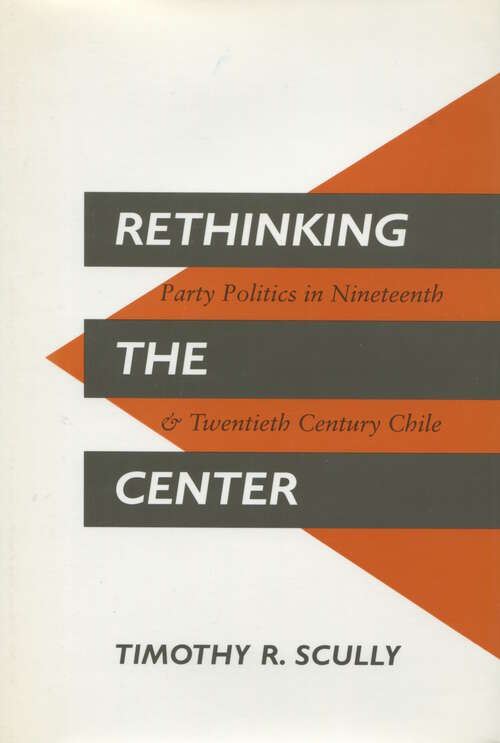Rethinking the Center: Party Politics in Nineteenth- and Twentieth-Century Chile (1)
By:
Sign Up Now!
Already a Member? Log In
You must be logged into Bookshare to access this title.
Learn about membership options,
or view our freely available titles.
- Synopsis
- From their beginnings in the mid-nineteenth century through the 1980's, political parties in Chile have displayed three discrete ideological tendencies, with two at opposite ends of the political spectrum and at least one in the center. This tripartite distribution made Chile's party system unlike any other in Latin America. How did Chile's distinctive system evolve? This book finds the answer in how three basic social cleavages—religious, urban, and rural—became polarized at three periods of "critical juncture." Clerical-anticlerical conflict gave initial definition to the party system in the period 1857-61, and continued to shape the political arena long after specific issues had receded into the background. Then, between 1920 and 1932, class conflict in the urban and mining enclave sectors forced party elites to respond to the demands of leaders of middle-sector and working groups for increased political and social power. This was the second of what the author calls Chile's "critical junctures" for party formation. The third, occurring in the period 1952-58, saw the spread of working-class politics into the countryside. Crucial here was a shift in the position of the Catholic Church on class conflict, resulting in the emergence of an important Church-inspired center party. The book compares the behavior of the political center during the three historical periods and suggests a conceptual framework for understanding different types of center parties. The author also addresses certain questions raised by the emergence and behavior of center parties: What were the implications of the presence of a center party for the patterns of party competition? Why did the center emerge and re-emerge at each critical point in the evolution of Chile's party system? Can this be understood in terms of an underlying coalitional logic, or are factors such as leadership, political choice, and historical accident more useful explanations? Consistent with this focus on the center is a new account of the key role of the Christian Democrats in the reconstitution of party competition in the late 1980's and early 1990's. The author concludes by offering some observations on the probable shape of party politics—and the role of the political center within it—in tomorrow's Chile.
- Copyright:
- 1992
Book Details
- Book Quality:
- Publisher Quality
- Book Size:
- 292 Pages
- ISBN-13:
- 9780804765978
- Publisher:
- Stanford University Press
- Date of Addition:
- 12/19/24
- Copyrighted By:
- . by the Board of Trustees of the Leland Stanford Junior University
- Adult content:
- No
- Language:
- English
- Has Image Descriptions:
- No
- Categories:
- Nonfiction, Politics and Government
- Submitted By:
- Bookshare Staff
- Usage Restrictions:
- This is a copyrighted book.
